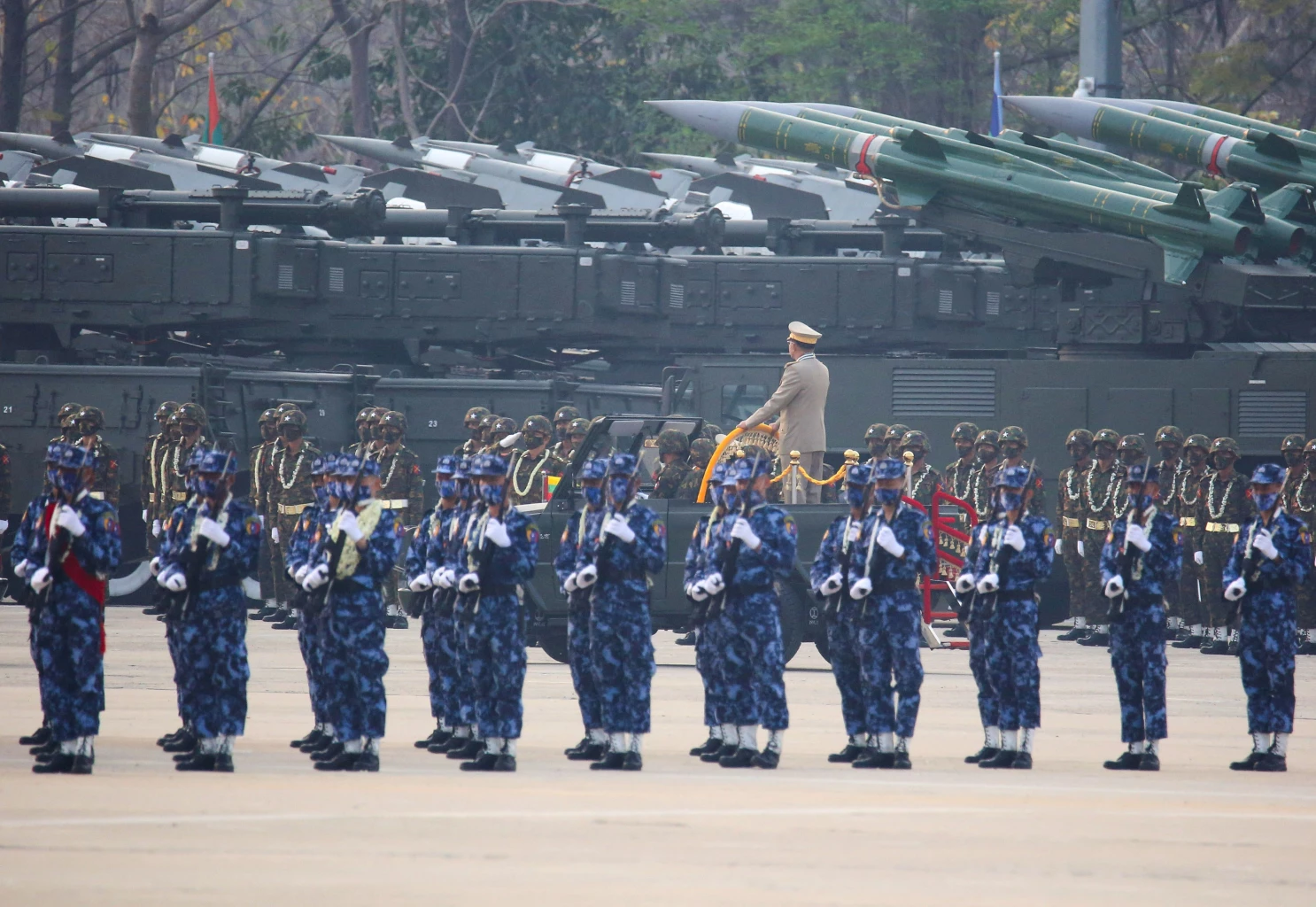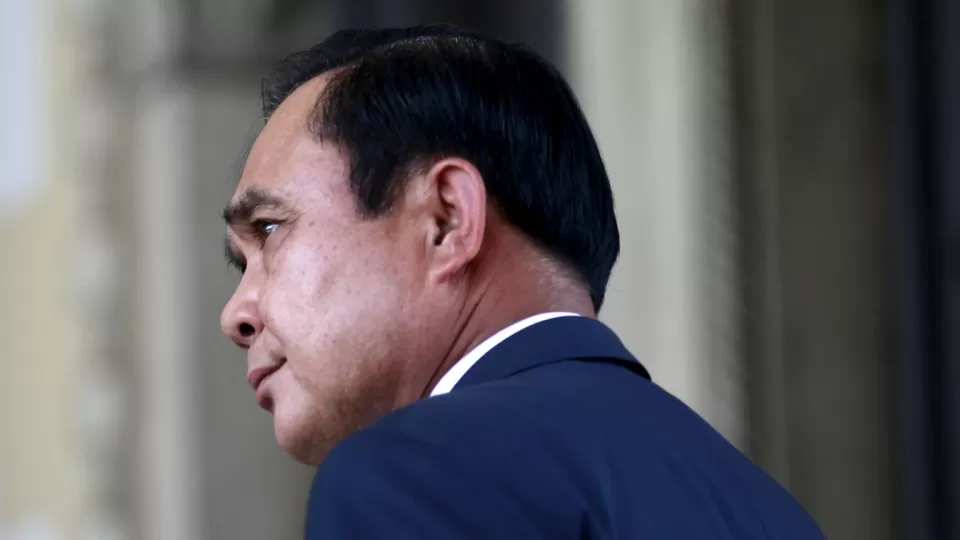October 11, 2022
BANGKOK – Thailand’s Prime Minister Prayut Chan-o-cha must be enthusiastic about attending the Asean leaders’ biannual summit in Phnom Penh next month, especially the session on measures to end the Myanmar junta’s killings and oppression.
Prayut’s nearly unconditional support for junta leader General Aung Min Hlaing has made it more difficult for regional leaders to reach decisive agreements because they know Prayut with come to Hlaing’s rescue.
Prayut’s failure to change his attitude will be damaging to the central role Thailand has long played in Asean. When Indonesian President Joko “Jokowi” Widodo hosted an Asean emergency summit in Jakarta on April 24, 2021, the Thai premier did not turn up, citing the Covid-19 pandemic and his busy schedule. At the summit, General Hlaing vowed to comply with a five-point consensus that included the immediate cessation of violence against civilians and a dialogue with all concerned parties in Myanmar, including Aung San Suu Kyi.
Once he arrived home, Hlaing refused to carry out his pledge. After seizing power from the democratically elected government of Suu Kyi in February 2021, Hlaing immediately contacted Prayut, seeking guidance on how to stay in power. Hlaing had come to the right person, not only because Prayut was his close friend, but also because the Thai Army general had himself toppled the elected civilian government of Yingluck Shinawatra.
Prayut holds a unique position among Asean leaders but is similar to the Myanmar’s junta leader. Prayut launched a coup against prime minister Yingluck, the sister of former PM Thaksin Shinawatra, in 2014 and appointed himself the prime minister. A questionable general election in 2019 granted him another four years of rule. Last month, the Constitutional Court rejected a petition by opposition parties on an end to Prayut’s premiership. The opposition groups had argued that the prime minister had already completed his constitutional limit of eight years in power, counting his time as coup leader. The court said the term limit law had come into force in 2017 after the Constitution was promulgated, and therefore, Prayut would reach his term limit only in 2025.
Thailand is scheduled to hold a general election next year, as does Myanmar. Thailand is very familiar with military coups and constitutional amendments. The country has seen 13 successful and nine unsuccessful coups. It has also revised its Constitution 20 times. Despite its political vulnerability, the country remains stable and its economy continues to grow.
Next month in Cambodia, Asean leaders will host meetings with their dialogue partners from China, Japan, South Korea, Australia, India and Russia. The endless atrocities in Myanmar will be an important topic of discussion. Hopefully this time around, the Thai leader will distance himself from Hlaing for the sake of Myanmar’s people and Asean unity. Several Asean leaders have expressed their intention to get tougher on the Myanmar junta, and the group has barred General Hlaing from attending next month’s summit.
Unwavering support for the Myanmar junta will cost Thailand its traditionally strong influence in the regional grouping. If that happens, it will be big a loss not just for Thailand but also Asean.
The bloc was established in Bangkok on August 8, 1967. Since then, Thailand, the only nation in the region that has never been a colony of foreign forces, has always played a decisive role in Asean. It plays the leadership role especially for the other Asean countries where the Mekong River flows: Laos, Cambodia, Myanmar and Vietnam.
Asean foreign ministers are scheduled to hold a special session this month to issue their recommendations to their leaders ahead of their summit in Phnom Penh next month. They are now closer to the opinion that tougher action against Myanmar’s military regime is unavoidable. They will no longer wait for General Hlaing to repent. These bolder measures are supported by Indonesia, Malaysia, the Philippines and Singapore, while Malaysia, Cambodia and Brunei will be unlikely to resist the initiative, as the Myanmar junta has upset them. An option to suspend Myanmar’s Asean membership is not impossible, especially if the leaders agree to amend the 2007 Asean Charter with regard to the non-interference principle.
President Jokowi, Malaysian Prime Minister Ismail Sabri Yakoob and Singaporean Prime Minister Lee Hsien Loong have openly expressed their support for dealing directly with Myanmar’s ousted leader Suu Kyi and the military. New Philippine President Ferdinand “Bongbong” Marcos Jr has also voiced a similar view.
After taking over Asean’s chairmanship from Cambodian Prime Minister Hun Sen next month, President Jokowi will be in a stronger position to facilitate more decisive action against the Myanmar junta.
Prayut can exercise his power and influence to convince Myanmar to follow Asean’s way, or face punishment from the grouping. Thailand has been generally silent about the Myanmar issue. In representing Prayut at the UN General Assembly in New York last month, Deputy Prime Minister and Foreign Minister Don Pramudwinai said in his address to the UN Assembly that as an immediate neighbour to Myanmar, Thailand had a vital interest in seeing a quick return to peace and stability in Myanmar.
“Thailand fully supports the constructive role of Asean and believes that Asean is best placed to help Myanmar through the time-tested Asean practice of consultation, cooperation and consensus. Thailand will continue to play an active and constructive role to support this Asean process,” Don said.
The statement was too general and lacked clarity as to whether Thailand would throw its weight behind bolder Asean moves against Myanmar. Thailand used to play a key role in the policy-making of Asean. During the years-long negotiations among the warring parties in Cambodia in the 1980s and early 1990s, Indonesia was the chief negotiator, but without strong support from Thailand, as well as Vietnam, long-lasting peace would never have returned to Cambodia.
Now it is time for Prayut to demonstrate his statesmanship. He must work together with other Asean leaders to help Myanmar’s people gain freedom from the military’s oppression and atrocities.



